CORPORATE ACTION: Coca-Cola
Unilever Vietnam Proves That Sustainability Supports Bottom Line
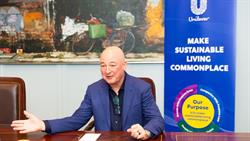 Unilever’s business operations in Vietnam highlight the company’s belief that having a sustainability plan strengthens its performance. Unilever Vietnam demonstrates impressive growth while “creating a positive impact on people”. For example, the company’s Personal Care division is a market leader “while improving hygiene standards”. Meanwhile, Unilever Vietnam’s Home Care business has posted strong growth while introducing the “Clean Future” program, which seeks to provide consumers with high-performing products that are also environment-friendly.[Image Credit: © Unilever]
Unilever’s business operations in Vietnam highlight the company’s belief that having a sustainability plan strengthens its performance. Unilever Vietnam demonstrates impressive growth while “creating a positive impact on people”. For example, the company’s Personal Care division is a market leader “while improving hygiene standards”. Meanwhile, Unilever Vietnam’s Home Care business has posted strong growth while introducing the “Clean Future” program, which seeks to provide consumers with high-performing products that are also environment-friendly.[Image Credit: © Unilever]
CORPORATE ACTION: Procter & Gamble
Cincinnati Companies Collaborate To Encourage City Residents To Recycle
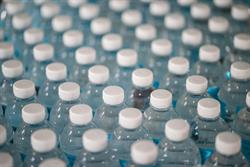
Several companies, including Procter & Gamble, Kroger and Fifth Third, are collaborating with Cintrifuse and the city of Cincinnati to promote recycling in the region. In 2020, the city’s residents recycled 16,000 tonnes, dropping from 19,000 tonnes in 2011. This further limited companies’ ability to meet their demand for recycled materials.[Image Credit: © Jonathan Chng on Unsplash]
CORPORATE ACTION: Unilever
Consumer Goods And Packaging Companies Look At Packaging Trends For Circular Economy
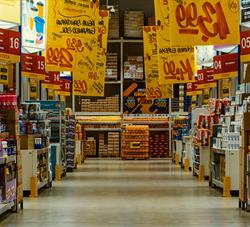 Executives from McKinsey, Unilever and Colgate-Palmolive gathered at the Sustainability Next Summit to discuss the likely trends in the grocery industry in 2035. Discussions also focused on ways for industry leaders to meet consumer demand for recyclable product packaging while supporting scale and the “need to balance consumer convenience”. The conference also highlighted cooperative efforts among consumer goods and packaging companies to create scale and consistency. Manufacturers and packaging companies need to address the gap between consumer desire to live more sustainably and those who actually do.[Image Credit: © Eduardo Soares from Pexels]
Executives from McKinsey, Unilever and Colgate-Palmolive gathered at the Sustainability Next Summit to discuss the likely trends in the grocery industry in 2035. Discussions also focused on ways for industry leaders to meet consumer demand for recyclable product packaging while supporting scale and the “need to balance consumer convenience”. The conference also highlighted cooperative efforts among consumer goods and packaging companies to create scale and consistency. Manufacturers and packaging companies need to address the gap between consumer desire to live more sustainably and those who actually do.[Image Credit: © Eduardo Soares from Pexels]
Seventh Generation Aims For Zero Waste Status
 Seventh Generation aims to reach zero waste status. By 2025, the company aims to make all its packaging 100 percent bio-based or post-consumer recycled, while making 100 percent of materials reusable and reused, recyclable and recycled, or biodegradable and degraded. Also, the company has committed to having 100 percent of its materials and ingredients to be sustainable bio-based or recycled. Acquired by Unilever in 2016, the Burlington, Vermont-based company has been known for its commitment to sustainability and conservation of natural resources. [Image Credit: © AdoreBeautyNZ from Pixabay]
Seventh Generation aims to reach zero waste status. By 2025, the company aims to make all its packaging 100 percent bio-based or post-consumer recycled, while making 100 percent of materials reusable and reused, recyclable and recycled, or biodegradable and degraded. Also, the company has committed to having 100 percent of its materials and ingredients to be sustainable bio-based or recycled. Acquired by Unilever in 2016, the Burlington, Vermont-based company has been known for its commitment to sustainability and conservation of natural resources. [Image Credit: © AdoreBeautyNZ from Pixabay]
CORPORATE ACTION: Other
Waitrose Launches In-Store Recycling For Soft Plastic Packaging
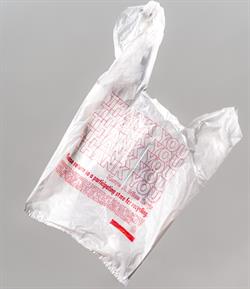
Waitrose has launched a soft plastic recycling program at 295 retail stores in the UK. Soft plastic packaging, including film and flexible packaging, accounts for about 25% of total consumer packaging in the country. Due to a scarcity of curbside collections and shortcomings in recycling infrastructure, only 8% of soft plastic packaging is recycled. Waitrose’s in-store recycling services accept various kinds of soft plastic packaging, including carrier bags, bread bags and frozen food bags.[Image Credit: © Christopher Vega on Unsplash]
Weleda’s Open Letter Calls For European Ban On Microplastics In Beauty Products
 Weleda has launched an open letter calling on the European Commission to implement a total ban on microplastics in beauty products. According to the health and beauty company, the current proposed legislation will not stop some beauty brands from intentionally adding microplastics to their products. Some industry leaders, including NAIF founder Sjoerd Trompetter and Beauty Kitchen founder Jo Chidley, have signed the open letter.[Image Credit: © Weleda]
Weleda has launched an open letter calling on the European Commission to implement a total ban on microplastics in beauty products. According to the health and beauty company, the current proposed legislation will not stop some beauty brands from intentionally adding microplastics to their products. Some industry leaders, including NAIF founder Sjoerd Trompetter and Beauty Kitchen founder Jo Chidley, have signed the open letter.[Image Credit: © Weleda]
Sainsbury’s Announces Move To Use Vacuum Packaging For Beef Mince
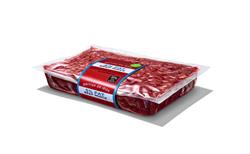
Sainsbury said it is replacing traditional plastic tray packaging for all of its own-brand beef mince products with a vacuum-packed alternative. The UK retailer said the move will allow it to save 450 tonnes of plastic each year. Also, the new packaging will result in at least 55% less plastic per product.[Image Credit: © J Sainsbury plc]
Group Of European And Chinese Companies Works To Expand Packaging Recycling In China
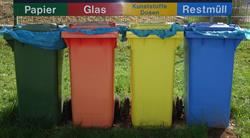 Germany’s Federal Ministry of Economic Cooperation and Development, supported by develoPPP funding, commissioned Deutsche Gesellschaft für Internationale Zusammenarbeit GmbH to organize a group of European and Chinese companies to launch the Waste to Resource packaging recycling program. The group includes companies from different sectors of the packaging value chain, such as Henkel AG & Co KGaA, Tetra Pak (Kunshan) Co., Ltd., and Tomra System ASA. Operating since August 2021, the project’s objectives include upgrading the waste segregation system in China and increasing the country’s recycling rate to 50 percent.[Image Credit: © Michael Schwarzenberger from Pixabay]
Germany’s Federal Ministry of Economic Cooperation and Development, supported by develoPPP funding, commissioned Deutsche Gesellschaft für Internationale Zusammenarbeit GmbH to organize a group of European and Chinese companies to launch the Waste to Resource packaging recycling program. The group includes companies from different sectors of the packaging value chain, such as Henkel AG & Co KGaA, Tetra Pak (Kunshan) Co., Ltd., and Tomra System ASA. Operating since August 2021, the project’s objectives include upgrading the waste segregation system in China and increasing the country’s recycling rate to 50 percent.[Image Credit: © Michael Schwarzenberger from Pixabay]
Kelpi Receives Funds To Test Production Of Seaweed-Based Coatings For Paper Packaging
 Kelpi has secured £3 million in investment from a fundraising round led by Green Angel Syndicate and Science Creates Ventures. The investment from One Planet Capital and follow-on investment from Bristol Private Equity Club will help Kelpi advance its trailblazing technology for creating biomaterial coatings from seaweed. The funds will enable Kelpi to implement manufacturing pilots for the coatings for paper and card.[Image Credit: © KELP INDUSTRIES LTD]
Kelpi has secured £3 million in investment from a fundraising round led by Green Angel Syndicate and Science Creates Ventures. The investment from One Planet Capital and follow-on investment from Bristol Private Equity Club will help Kelpi advance its trailblazing technology for creating biomaterial coatings from seaweed. The funds will enable Kelpi to implement manufacturing pilots for the coatings for paper and card.[Image Credit: © KELP INDUSTRIES LTD]
CAMPAIGNS, COMMITMENTS & NGOs
Merseyside Recycling and Waste Authority Announces Community Fund To Promote Recycling And Reuse
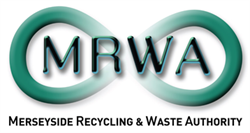 Liverpool, England’s Merseyside Recycling & Waste Authority has announced a £165,000 community fund aimed at reducing household waste, promoting recycling and reuse of resources, and preventing carbon emissions. Community organizations, voluntary groups, schools and non-profits can submit bids for funding available through the MRWA and Veolia Community Fund 2023/24. Bids should deal with one or more of the four priority household wastes identified by MRWA: waste electrical and electronic equipment, food, textiles and furniture.[Image Credit: © Merseyside Recycling and Waste Authority]
Liverpool, England’s Merseyside Recycling & Waste Authority has announced a £165,000 community fund aimed at reducing household waste, promoting recycling and reuse of resources, and preventing carbon emissions. Community organizations, voluntary groups, schools and non-profits can submit bids for funding available through the MRWA and Veolia Community Fund 2023/24. Bids should deal with one or more of the four priority household wastes identified by MRWA: waste electrical and electronic equipment, food, textiles and furniture.[Image Credit: © Merseyside Recycling and Waste Authority]
Hubbub And McDonald’s Launch #InTheLoop Grant Program For Local Authorities And Groups
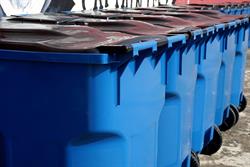 Environmental non-profit Hubbub has partnered with McDonald’s to launch a new #InTheLoop grant fund to aid local governments and other organizations in expanding out-of-home recycling in public places. The funding provided by McDonald’s will support two new projects aimed at launching or enhancing the partner groups’ recycling infrastructure. Two successful applicants will each receive £8,000 to finance their anti-litter campaigns and recycling facilities.[Image Credit: © Mike from Pixabay]
Environmental non-profit Hubbub has partnered with McDonald’s to launch a new #InTheLoop grant fund to aid local governments and other organizations in expanding out-of-home recycling in public places. The funding provided by McDonald’s will support two new projects aimed at launching or enhancing the partner groups’ recycling infrastructure. Two successful applicants will each receive £8,000 to finance their anti-litter campaigns and recycling facilities.[Image Credit: © Mike from Pixabay]
ALLIANCES, PARTNERSHIPS & JVs
Industry Cooperates With Other Stakeholders To Promote Sustainable Plastic Packaging
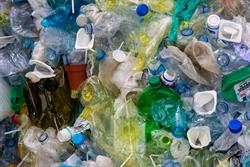 The Consumer Goods Forum’s Plastic Waste Coalition of Action has partnered with industry experts, recyclers and plastics organizations to come up with the Golden Design Rules for plastic packaging. These rules are designed to change humans’ relationship with plastic, in particular with its packaging applications. The first of the nine rules focuses on promoting the recycling of polyethylene terephthalate, or PET, which accounts for 13% of all plastic packaging currently on the market. The other rules deal with issues, including removing problematic elements from plastic packaging, eliminating too much headspace in flexible packaging and removing unneeded plastic overwraps.[Image Credit: © Magda Ehlers from Pexels.com]
The Consumer Goods Forum’s Plastic Waste Coalition of Action has partnered with industry experts, recyclers and plastics organizations to come up with the Golden Design Rules for plastic packaging. These rules are designed to change humans’ relationship with plastic, in particular with its packaging applications. The first of the nine rules focuses on promoting the recycling of polyethylene terephthalate, or PET, which accounts for 13% of all plastic packaging currently on the market. The other rules deal with issues, including removing problematic elements from plastic packaging, eliminating too much headspace in flexible packaging and removing unneeded plastic overwraps.[Image Credit: © Magda Ehlers from Pexels.com]
CONSUMER & PUBLIC OPINION
Consumer Demand Drives Manufacturers To Come Up With Earth-Friendly Wipes
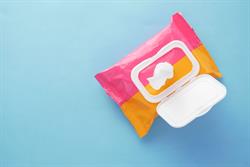 Manufacturers are improving the sustainability of their wet wipes in response to investor and consumer demands for environment-friendly products. Data from Euromonitor’s Sustainability Survey revealed that 66% of consumers worldwide said concern for the environment are driving their everyday actions in 2022. For its part, UK retailer Boots is working to remove plastic from its own-brand wipes and ultimately plans to eliminate plastic from all wipes it sells.[Image Credit: © Towfiqu barbhuiya on Unsplash]
Manufacturers are improving the sustainability of their wet wipes in response to investor and consumer demands for environment-friendly products. Data from Euromonitor’s Sustainability Survey revealed that 66% of consumers worldwide said concern for the environment are driving their everyday actions in 2022. For its part, UK retailer Boots is working to remove plastic from its own-brand wipes and ultimately plans to eliminate plastic from all wipes it sells.[Image Credit: © Towfiqu barbhuiya on Unsplash]
Lack Of Water Refill Stations Keeps UK Residents From Carrying Reusable Bottles
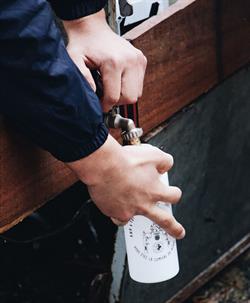
In the UK, 64 percent of respondents said “they would be more likely to carry a reusable bottle” if there were more refill stations and water fountains in public places. Results of the Yonder survey conducted in January and commissioned by Ocean Bottle also revealed 31 percent buy bottled water on long journeys. 74 percent said they own a reusable water bottle but do not bring it with them because of the lack of refill stations.[Image Credit: © Maël BALLAND from Pexels]
Survey Reveals Two-Fifths Of UK Consumers Ready To Pay More For Sustainable Cutlery

In the UK, 40 percent of consumers said they are willing to pay more for sustainably sourced or reusable cutlery. Results of market research firm Vypr’s survey showed that 43.1 percent of consumers think that food retailers are not doing enough to protect the environment. Only 13 percent said they received recycled cutlery when ordering food to go, while 29 percent said they received wooden cutlery.[Image Credit: © Hans from Pixabay]
POLICY, REGULATION & LEGAL
NLWA Claims Loophole Could Make UK Single-Use Plastic Ban Ineffective
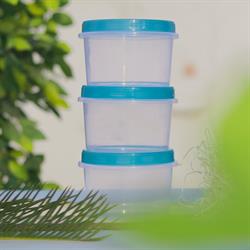
North London Waste Authority asserts that a loophole in the UK Government’s upcoming ban on some single-used plastics could “make it ineffective”. NLWA focuses on the exemption for single-use plastic plates, trays, or bowls designed to be used for packaging. NLWA further claims that takeaway food retailers and restaurants can offer “prepared” food in plastic containers to circumvent the ban.[Image Credit: © Ibrahim Plastic Industry ( IPI ) from Unsplash]
INNOVATION & TECHNOLOGY
Polytag Creates Advanced UV Technology For Tracking Plastic Packaging
 Polytag has partnered with researchers at the Advanced Manufacturing Research Centre to develop a UV tag-reading technology capable of tracing packaging through the circular economy. Also, the company said the new technology will let brands, lawmakers and recycling operators keep track of plastic packaging in the circular economy. It will also provide stakeholders with significant benefits for recycling rates in the U.K.[Image Credit: © Polytag]
Polytag has partnered with researchers at the Advanced Manufacturing Research Centre to develop a UV tag-reading technology capable of tracing packaging through the circular economy. Also, the company said the new technology will let brands, lawmakers and recycling operators keep track of plastic packaging in the circular economy. It will also provide stakeholders with significant benefits for recycling rates in the U.K.[Image Credit: © Polytag]
EMERGING IDEAS, THEMES & TRENDS
Innova Market Insights Reveals Top Packaging Trends For 2023
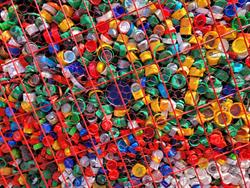
Plastics circularization, or recycle-by-design plastic packaging and recycling systems that can integrate plastic into a circular economy, is the top packaging trend for 2023. According to Innova Market Insights, other most significant trends in the packaging industry include consumer fears of unsubstantiated sustainability claims by brands and marketers. Also, consumer support is growing for renewable packaging, such as paper and bioplastics.[Image Credit: © Killari Hotaru on Unsplash]
RESEARCH
Report Looks At Local Plastic Supply Chains In Four Asian Countries
 A report from The Circulate Initiative and the Anthesis Group presents an economic analysis of local plastic recycling chains in India, Indonesia, Thailand and Vietnam. Results of the study, “Mapping Local Plastic Recycling Supply Chains,” highlighted the economics for recycled plastic at every stage of the local supply chains for plastics. The study also focused on the “key factors” affecting prices, as well as the steps that can be taken to improve supply chains. The role of informal workers in existing value chains and how they can help in improving the supply chains are also evaluated.[Image Credit: © The Circulate Initiative]
A report from The Circulate Initiative and the Anthesis Group presents an economic analysis of local plastic recycling chains in India, Indonesia, Thailand and Vietnam. Results of the study, “Mapping Local Plastic Recycling Supply Chains,” highlighted the economics for recycled plastic at every stage of the local supply chains for plastics. The study also focused on the “key factors” affecting prices, as well as the steps that can be taken to improve supply chains. The role of informal workers in existing value chains and how they can help in improving the supply chains are also evaluated.[Image Credit: © The Circulate Initiative]
Copyright 2026 Business360, Inc.

